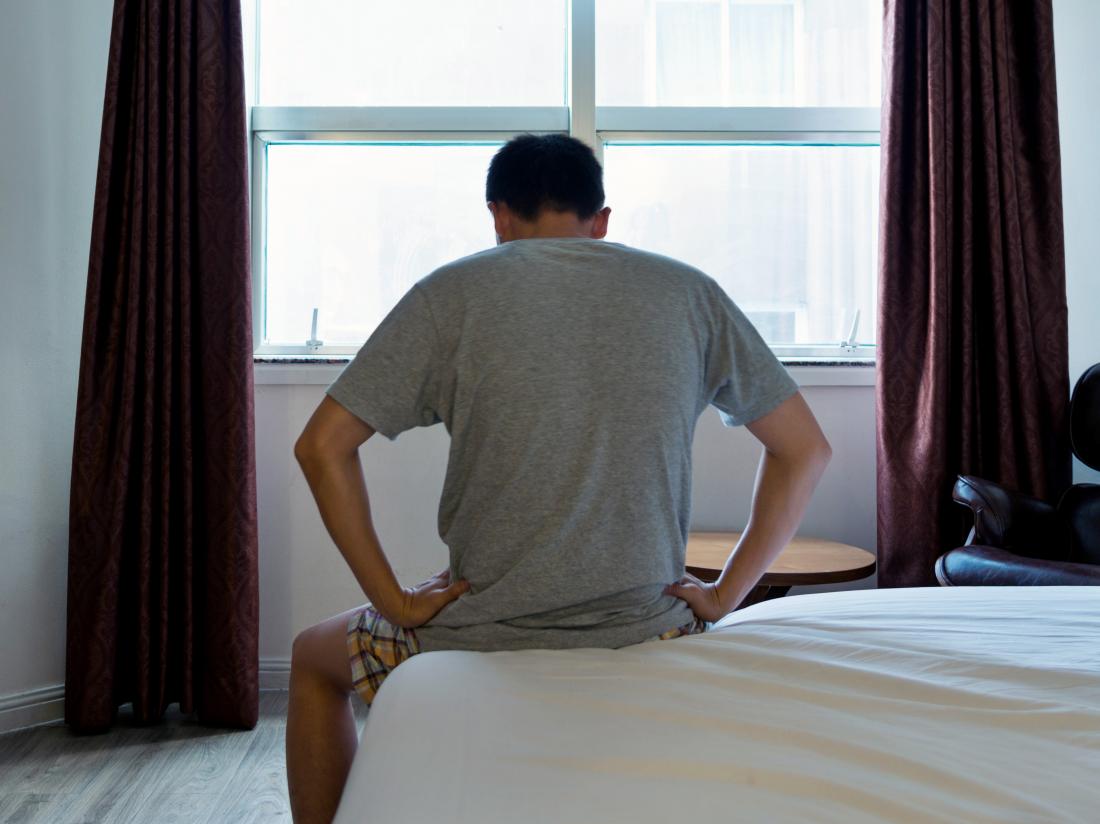Some people may also experience semen leakage while asleep or after urination. Occasionally, it can signal an underlying health condition that requires treatment.
In this article, we discuss common causes of semen leakage, potential treatment options, and when to see a doctor.
Causes
Semen leakage may occur at certain times or as a result of an underlying medical condition.
In the sections below, we list some potential causes.
During sexual arousal
Semen leakage may occur during sexual arousal, after urination, and during sleep.
Some semen may leak out during periods of sexual arousal.
For example, semen leakage may occur during any type of sexual activity or while having sexual thoughts. Leakage may also occur just before or just after ejaculation.
Another fluid, called pre-ejaculatory fluid, may also leak during sexual activity. Pre-ejaculatory fluid is also known as precum.
This fluid may sometimes contain sperm, which is why it is important to use a condom or another form of contraception to prevent unintended pregnancy.
Learn more about precum and pregnancy here.
After urination
Leakage after urination may occur if semen remains in the urethra after ejaculation. Sometimes, this can mix with the urine, which causes the urine to appear cloudy.
Semen leakage after ejaculation is not a cause for concern. However, not all discharge from the penis is semen.
Discharge may indicate the presence of a sexually transmitted infection (STI). It may also indicate urinary incontinence, or unintentional urine loss.
During sleep
Adolescents and younger adults commonly experience semen leakage during sleep, although it can affect males of any age.
Known as nocturnal emissions, or wet dreams, these nighttime leakages occur when dreams cause sexual arousal. Contact with bedding or clothing may also cause arousal and subsequent ejaculation of semen.
Learn more about wet dreams here.
Prostatitis
Prostatitis refers to inflammation of the prostate gland, which is a small gland between the bladder and the penis. The prostate produces semen.
Prostatitis is the most common urinary tract issue for males under 50, and the third most common for those over 50. It can cause the following symptoms:
- discharge from the penis that can look like semen
- pain in the genital area, lower abdomen, or lower back
- painful, urgent, or frequent urination
- flu-like symptoms
If prostatitis lasts for at least 3 months or recurs frequently, it is known as chronic prostatitis. It can cause erectile dysfunction, painful ejaculation, and other sexual problems.
Nervous system injury
The nervous system is the complex network of nerves and cells that transmits messages between the brain and other parts of the body. It controls all of the body’s functions, including ejaculation.
Damage to the nervous system may cause semen leakage or other changes in ejaculation.
Injuries and serious medical conditions that can cause nervous system damage include:
A side effect of medication
Taking certain medications can cause changes to ejaculation. For example, some drugs can result in semen leakage, a lack of sexual desire, or erectile dysfunction.
Examples of such medications include:
Prostate cancer
Cancer is another condition that affects the prostate gland. After skin cancer and lung cancer, prostate cancer is the most common cancer among males. It affects approximately 1 in every 9 males at some point in their lives.
In the early stages, prostate cancer may not cause any symptoms. As it progresses, however, symptoms may include:
- changes in semen and ejaculation
- difficulty urinating
- blood in the semen
- pelvic discomfort
- erectile dysfunction
Although prostate cancer is a serious condition that requires medical treatment, the American Cancer Society report that most males with prostate cancer do not die from it.
It is important for people to seek treatment if they experience any of the symptoms listed above.
When to see a doctor

A person should speak to their doctor if they experience pain during ejaculation or urination.
Semen leakage during certain activities is normal. However, frequent or excessive leakage may cause distress. People who have concerns about semen leakage, or other aspects of sexual functioning, can speak to their doctor.
They will be able to provide reassurance and support. They can also investigate any concerns a person may have and prescribe treatments where necessary.
If semen leakage is accompanied by any of the following symptoms, it is a good idea to see a doctor for further investigation:
- pain during ejaculation or urination
- semen that is bloody or smelly or has an unusual appearance
- changes in ejaculation or sexual functioning
Treatment options
Treatment for semen leakage depends on the underlying cause.
During sexual arousal
Semen leakage during sexual arousal is normal and common. It does not require any treatment.
If excessive amounts of fluid leak out and this causes discomfort or embarrassment, a doctor may recommend medication.
After urination
Semen leakage after urination is common for some males. If the leakage is as a result of an STI or urinary incontinence, however, treatment can help.
A doctor will typically treat an STI with antibiotics or other medications. People should not attempt to treat an STI with home remedies, nor should they avoid seeking treatment. Without treatment, STIs can cause serious complications.
Treatment for urinary incontinence includes:
- pelvic floor exercises
- bladder training techniques
- medications
Learn more about how to cope with urinary incontinence here.
During sleep
No treatment is necessary for wet dreams, as they are a natural occurrence. They typically become less frequent after adolescence.
If wet dreams are causing distress or discomfort, the following tips may reduce or prevent them from occurring:
- practicing relaxation techniques, such as meditation, before bed
- discussing dreams with a psychotherapist
- masturbating before going to sleep
Prostatitis
The treatment options for prostatitis depend on the underlying cause.
If prostatitis is due to a bacterial infection, a doctor will prescribe antibiotics. Other medications for prostatitis include muscle relaxants and anti-inflammatory drugs.
Home remedies can also relieve some discomfort from prostatitis. Examples include:
- drinking plenty of water
- taking warm baths
- avoiding prolonged periods of sitting
- not consuming things that may irritate the bladder, such as citrus fruits, alcohol, and caffeine
Nervous system injury
Treatment for semen leakage resulting from a nervous system injury depends on the cause of the damage.
In most cases, people will require a combination of medicine, lifestyle changes, and other interventions.
A side effect of medication
People who experience changes in sexual function as a result of taking prescription medications should speak to their doctor. There may be alternative treatments available that do not cause semen leakage.
However, it is important to balance the benefits of medication with any adverse reactions that occur. Never stop taking a prescription medication without first seeking medical advice.
Prostate cancer

To reduce the risk of prostate cancer, a person can follow a healthful diet.
The treatment options for cancer of the prostate depend on how fast the cancer is growing, how much it has spread, and the person’s general health.
Treatment options for prostate cancer include:
Learn more about surgery for prostate cancer here.
Prevention
To help reduce or prevent semen leakage, people can try:
- masturbating before bed to prevent wet dreams
- following a healthful diet to reduce the risk of prostate cancer
- exercising regularly to manage weight, as excess weight can increase the risk of cancer and place extra stress on the bladder
- discussing the side effects of any new medication with a doctor, and weighing these up against the potential benefits of the treatment
- seeing a doctor for regular checkups or if issues arise with urination or sexual function
Summary
Although it may cause discomfort, most cases of semen leakage are normal and not a cause for concern.
Episodes of semen leakage tend to become less common as a person grows older.
Frequent or excessive semen leakage may indicate an underlying health condition, especially in older males. Anyone who has concerns should see their doctor.
